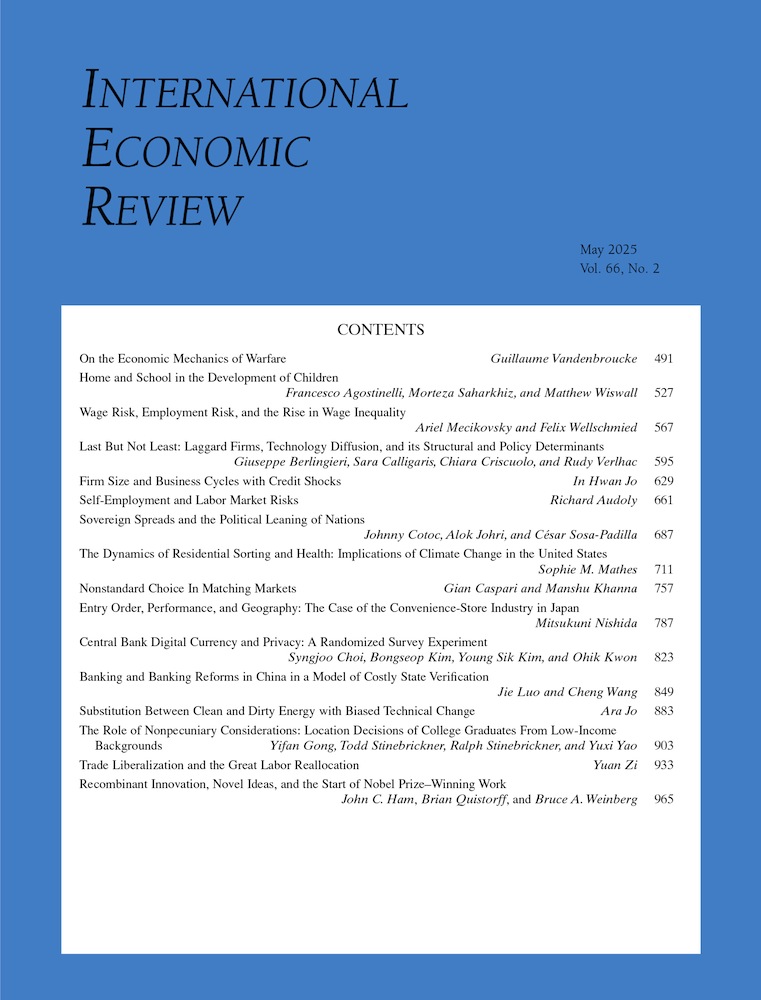Information Invariance in Variable-Population Social-Choice Problems
Abstract
We examine the possibilities of extending Sen's taxonomy of fixed-population information assumptions regarding the measurability and interpersonal comparability of individual utilities to social-choice problems where the population may vary. It is shown that in order to avoid impossibility results, informationally more demanding assumptions than in the fixed-population framework are required. We provide characterizations of variable-population social-welfare orderings based on information assumptions, and we suggest a way of generating the required informational environment by means of norms that impose a domain restriction on the set of possible utility profiles.




